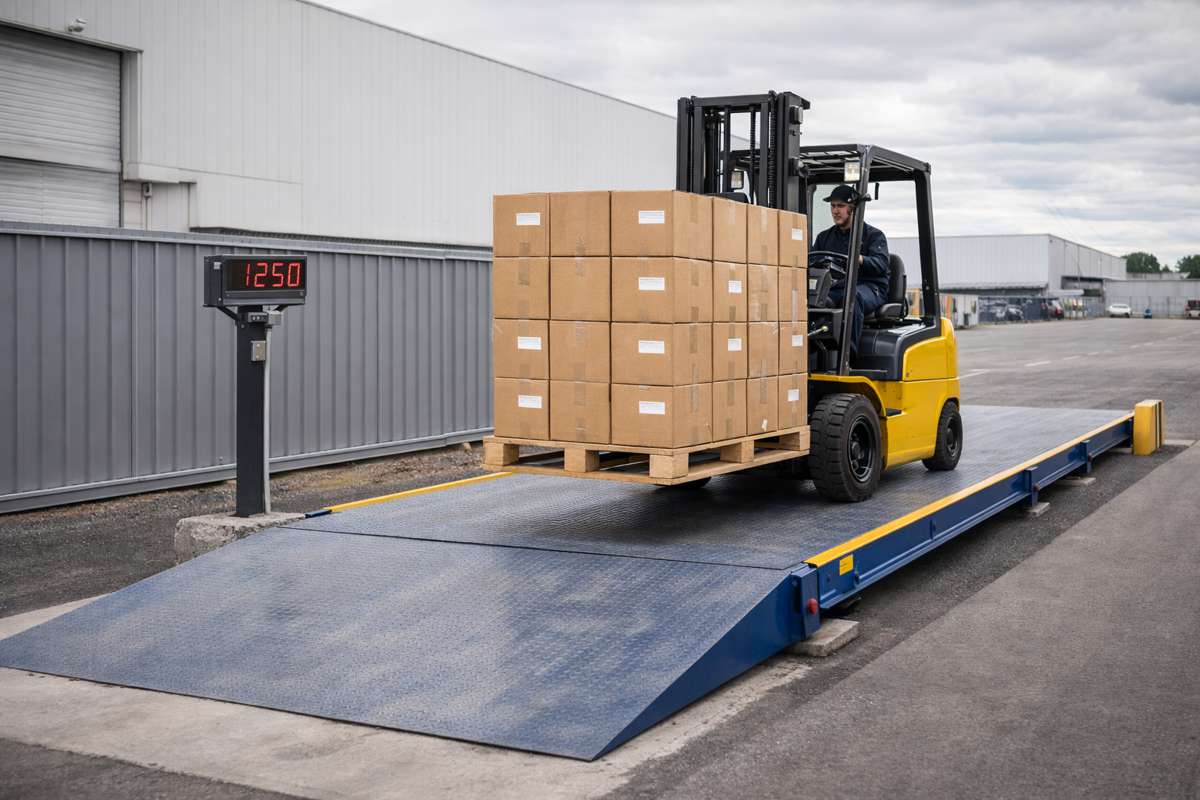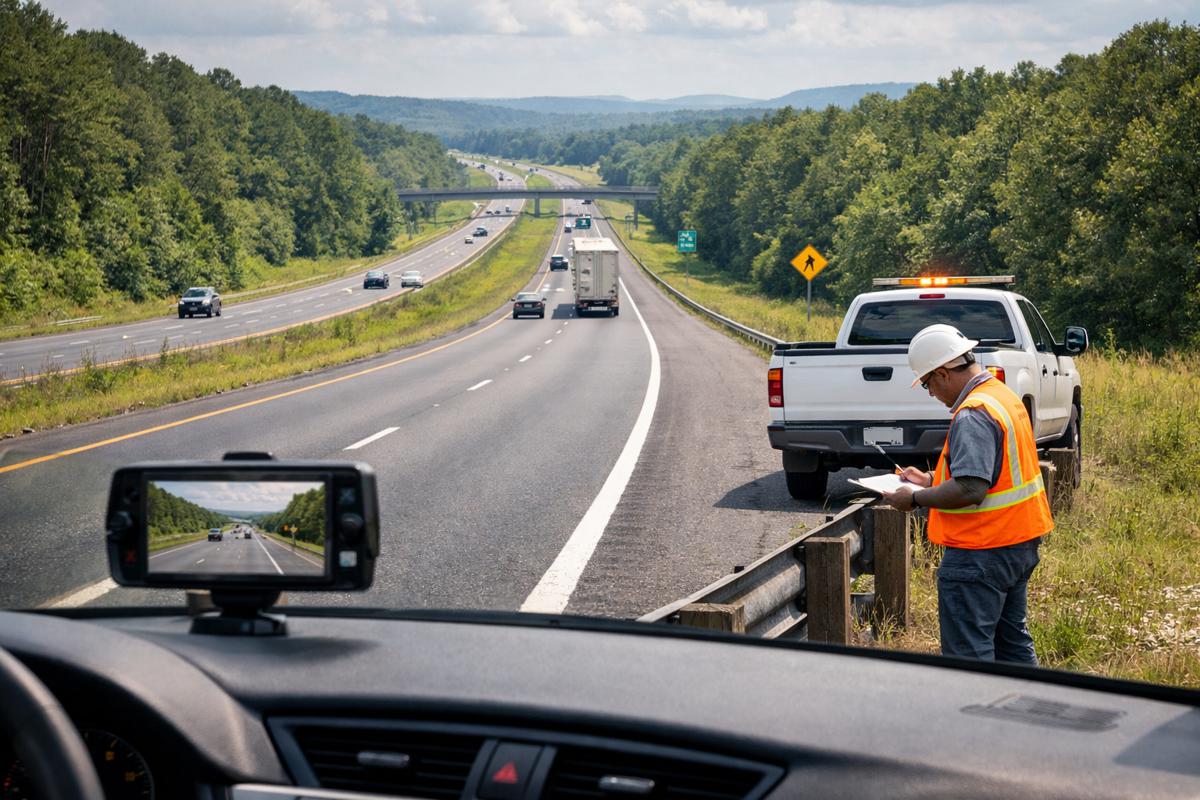A Highway Guide to Sleeping on the Road for Rookie Truckers
Anyone who has ever become an expert in their field has, at some point in their career, been the rookie in the room. When it comes to trucking, even though it may seem like a very isolated career where being a rookie isn’t noticeable, there are some very real laws of the land rookies should keep in mind, especially when pulling off the sleep among their colleagues.
Trucking careers can be exciting, yet quite demanding, and one of the most overlooked challenges is getting quality sleep on the road. Long-haul truckers often struggle with aspects such as finding safe parking, creating a comfortable environment in their sleeper cab, and ensuring their rest isn’t disrupted by noise or other safety concerns.
As you can imagine, sleep deprivation can lead to fatigue-related accidents, poor health, and reduced job performance, so driving home the importance of quality sleep for rookies who might be more focused on getting in as many hours as possible is super important.
Due to this very real fact, we decided that informing new truckers on essential tips to maximize their rest while on the road would be extremely beneficial to all truckers on the road.
So, if you’re a rookie truck driver, these following strategies can help keep you safe, well-rested, and informed on some of the best practices when it comes to sleeping on the road.

Choosing a Safe Place to Park
The first step in calling it a night and pulling off for some rest is finding a secure and quiet place to park overnight (or during the day).
Truckers have quite a few options when it comes to this, including truck stops, rest areas, and company terminals.
Each option comes with its own pros and cons, and understanding these will help rookie drivers make more informed choices when looking for a place to sleep.
Best Parking Options for Truckers
Truckers often have to plan their parking spots in advance, especially when traveling in busy areas where space fills up fast.
Below are the most common parking locations to keep in mind:
Truck Stops
Truck stops, the most obvious option, are great, as they offer fuel, food, showers, and sometimes even laundry facilities.
However, truck stops tend to be noisy due to the high volume of traffic and idling trucks, so keep that in mind. If your cab is well sound-proofed, this might be less of a concern, but we’ll get into cab upgrades later on.
Rest Areas
As another top option, rest stops provide quieter parking spots but most likely lack adequate security and the resources truck stops have. While some rest areas have designated parking for trucks, availability can be limited and some small rest stops might not even have designated truck spots.
Company Terminals
Now, parking at a company’s terminal is often the safest choice and most comfortable.
These locations are primarily designed for truckers pulling off for some rest, to provide security, and in some cases, additional driver amenities. However, they are not always conveniently located along every route, so you’ll either have to plan your trip around these locations or maybe just get lucky one is on your route!
Factors to Consider When Choosing a Spot
A well-planned parking and rest plan can make all the difference between a good night’s rest and an uncomfortable, restless night.
So, before settling into a parking space, consider each of the following:
Lighting
Well-lit areas are more likely to deter crime and improve overall visibility, making it easier to spot suspicious activity and keep away any bad actors.
Security Measures
Look for areas with surveillance cameras, security patrols, or controlled entry points. These will usually be found at truck stops and company stops, as rest stops will rarely have these resources.
Noise Levels
Parking near high-traffic areas or exits can result in constant noise interruptions and poor sleeping conditions. Finding a quieter corner of a truck stop or rest area can make a big difference, trust me
Planning your route to include reliable parking options can help avoid last-minute decisions that could compromise safety.

Etiquette Among Drivers Sleeping in the Same Area
Just as taxi drivers in New York have their own unwritten rules and driver code among other drivers, there is a very real world of expectations between truck drivers sharing the roads
Since truck drivers often sleep in close quarters with others at truck stops or rest areas, making sure you understand and follow the proper truck etiquette is crucial. Being considerate of fellow truckers makes sure that everyone gets the rest they need, and the last thing you want to do is be tagged as the rookie who ruined everyone’s rest.
Noise Control
First off, one of the biggest concerns here would be noise.
Noise is one of the biggest disruptions truckers face when trying to sleep, as you might imagine. While some level of noise is unavoidable, there are ways to minimize disturbances:
- Reduce any unnecessary idling. Keeping your engine running overnight is not only wasteful but also loud and disruptive to those around you. There are a variety of quieter options to run resources such as A/C and chargers.
- Use headphones for music or watching videos instead of playing them on your cab speakers. While some drivers might sleep through anything, others might not.
- Drivers pull over to rest at all times of the day, so regardless if you’re arriving late or leaving early, keep movements as quiet as possible, such as shutting and slamming doors gently.
Parking Etiquette
From what we’ve found, nothing frustrates veteran truck drivers more than rookies taking up too much space or blocking spots.
Proper parking habits not only help keep the truck stop or rest area organized, it also ensures that every driver has a fair chance of getting a rest spot.
- Park only within designated spaces and avoid taking up extra room. If you can’t fit without making a scene, move on.
- Don’t block other drivers in or park in a way that makes it difficult for others to leave. Nothing is worse than being woken up by a disgruntled driver who is late getting on the road because of you.
- If parking at a full truck stop, be careful where you park, as in many cases large, open spaces that might seem like prime parking spots are needed for other purposes. If you don’t know, ask.
Communication and Courtesy
Lastly, good communication goes a long way in maintaining a peaceful environment and relationship with other truckers. Asking a dumb question is better than not communicating at all. Just about every trucker uses a CB radio, so you will always have a means of secure communication.
If you need to ask another driver to move their truck or need help finding a parking spot, be respectful and professional. Small acts of courtesy like dimming headlights when pulling into a truck stop late at night can make all the difference, as well as contribute to a better atmosphere on the lot.
Drivers understand rookies are out there, just don’t be “that” rookie.

Setting Up an Optimal Sleeper Cab
Beyond finding parking and doing so without upsetting other drivers, any rookie will quickly learn that their sleeper cab is where they will spend the second most time on the road, and having a nice sleeper cab is crucial.
Setting it up for maximum comfort is the best practice for improving sleep quality and making tough, long-haul trips more manageable.
Must-Have Sleep Accessories
While some high-end trucks come well equipped, not all trucks come with high-quality sleeping setups, so upgrading certain aspects of your sleeper cab can make all the difference.
Memory Foam Mattress
Many factory-installed cab mattresses can be quite uncomfortable, so taking the time and investing in a good mattress or a memory foam topper can help.
For rookies, it can be quite confusing trying to determine what size mattress is in a semi truck, so make sure to take some measurements before making any sort of purchase.
Breathable Bedding
Electing to go with lightweight, breathable bedding is a great idea to help keep your body temperature regulated while sleeping, especially if you do not have the best cab A/C system
Portable Fan or Heater
Speaking of cab A/C, temperature control can be quite challenging inside a cab, so having a small fan or heater can make a huge difference.
Organizing the Sleeper Cab
Just like having a messy home can really impact your mental and physical well-being, keeping the space in your cab organized is key.
As this space inside a truck sleeper is limited, organization is key to maintaining a functional and comfortable environment.
- Use hanging organizers to store frequently used items.
- For non-essential belongings, lean on any under-bed storage bins to maximize space.
- Keep the sleeper cab clean and clutter-free to help establish that relaxing sleep environment you need.
Creating a Restful Sleep Environment
A good night’s sleep requires more than just the semi truck mattress upgrade we discussed earlier.
Keep these small adjustments in mind when looking to improve sleep quality:
- Soft lighting rather than harsh, overhead lights can create a far more relaxing, sleep-friendly atmosphere.
- A small air purifier can be a huge plus, improving air quality and smell inside the cab.
- Adding personal touches and decorations like a favourite pillow or family photos can make the space feel more like home, which is the goal at the end of the day.

Safety Measures While Sleeping on the Road
Beyond getting better sleep to improve safety on the road, ensuring personal and cargo security while sleeping is also a top priority for truckers.
Being prepared for potential threats can help rookies prevent issues such as theft and other dangerous situations.
Securing Your Vehicle
A locked truck is a safe truck and the first line of defence against theft and break-ins.
- As we mentioned earlier, park in well-lit areas to deter potential threats.
- Use steering wheel locks or other security devices to add an extra layer of protection if things go awry.
- Consider installing a dash cam to monitor activity around the truck, as having a video record and evidence can be extremely helpful if anything does happen and the police get involved.
Personal Safety Tips
Beyond the more obvious points made earlier, taking some additional precautions never hurts, as they help to ensure that you remain safe while by yourself on the road.
- Always keep doors locked, even when inside the cab.
- Keep any valuables out of sight, you want to do everything you can to reduce the chances of an attempted break-in.
- Stay aware of your surroundings, and if anything seems suspicious, consider moving to a different location. Don’t be afraid to say something, as other drivers who can identify a threat might have missed it.

Understanding Legal Rest Requirements
Lastly, any trucker knows they must comply with federal rest regulations to avoid penalties and prevent fatigue-related accidents.
The Federal Motor Carrier Safety Administration (FMCSA) enforces very strict hours-of-service rules whose purpose is to keep drivers and other motorists safe on the road.
Current Rest Regulations
While sometimes changes, understanding the current, most up-to-date legal requirements is essential for drivers to stay compliant while getting their necessary rest.
- Drivers must take a 30-minute break after driving for up to eight consecutive hours.
- The daily driving limit is 11 hours within a 14-hour work period before requiring 10 consecutive hours of off-duty time and rest.
- Failure to comply with these regulations can result in severe fines, violations on a commercial driver’s license (CDL), or job termination if you work for a company or broker.
Using Electronic Logging Devices (ELDs)
To avoid any sort of potential violations or penalties, most trucking companies require drivers to use Electronic Logging Devices (ELDs) to track rest breaks and exact driving hours.
These amazing tools help ensure compliance and prevent accidental violations.
We know that being a rookie isn’t easy in any field or sector, but by following these rules and strategies, rookie truckers can give themselves the best shot at getting some quality sleep, remaining compliant with regulations, and staying safe on the road in general.
Proper rest leads to improved focus, better health, and overall job satisfaction, which is better for everyone on the road.






























